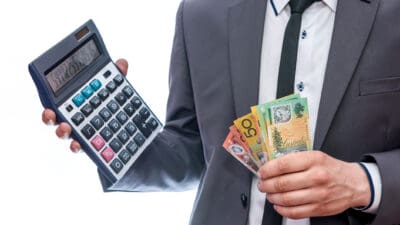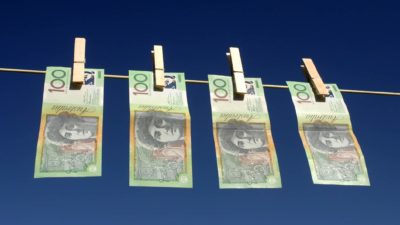The S&P/ASX 200 Index (ASX: XJO) is up 1.4% since 1 July 2021.
Some ASX shares, of course, have done much better, while others have fared worse.
ASX energy shares fall on the better side.
Buoyed by rocketing oil, gas, and coal prices, the S&P/ASX 200 Energy Index (ASX: XEJ) has gained 25% since 1 July.
ASX tech shares have largely gone the other way.
Pressured by rising inflation and the prospect of multiple interest rate rises, the S&P/ASX All Technology Index (ASX: XTX) has dropped around 16% since 1 July.
Where these indexes, and each of the specific ASX shares that make them up, will be come 30 June, the end of this financial year, remains to be seen.
But whether your portfolio is booking a profit or nursing losses, the Australian Taxation Office (ATO) will want to know.
With that in mind, the Motley Fool reached out to Mark Chapman, director of tax communications at H&R Block Australia, for some handy tips on how to sort out your ASX share documentation.
Have your ASX shares paid dividends?
If you've invested in ASX shares that have paid out dividends, there are some unique tax implications.
As Chapman explained:
Dividends are paid out of profits which have already been subject to Australian company tax which is currently 30%, or 25% for most small companies. Recognising that it would be unfair if shareholders were taxed again on the same profits, shareholders receive a rebate for the tax paid by the company on profits distributed as dividends.
These dividends are described as being 'franked' and have a franking credit (also known as an imputation credit) attached to them representing the tax the company has already paid.
The shareholder who receives a dividend is entitled to a credit for tax the company has paid. If the shareholder's top tax rate is less than 30% (or 25% where the paying company is a small company), the ATO will, under current rules, refund the difference.
Have you sold ASX shares during the financial year?
When you sell your ASX shares, you normally will have to pay capital gains taxes (CGT) on any profits. Though the ATO has a different set of requirements for investors and traders.
If you're an investor, Chapman told us, "CGT arises when you sell shares but can also happen if you give them away or you stop being an Australian resident. CGT taxes any increase in value from the time the share was acquired."
Be aware that if you give shares away or sell them cheaply the ATO may use the market value of the shares instead.
You should also be aware of how long you've owned your ASX shares.
"If you have owned the shares for more than 12 months, you can then discount the gain by 50%," Chapman said. "The resulting figure is your net capital gain. This is subject to tax at your marginal rate."
If you're a truly long-term investor and are only now selling ASX shares you bought before 20 September 1985, he added, then any profits will not be subject to CGT.
Are you a share trader?
"If you dabble regularly in buying and selling shares, you could be deemed a share trader, rather than a share investor," Chapman advised. "If that's the case, the tax you pay could look very different."
He said that signs you're a trader in ASX shares include:
- Lots of transactions
- A clear profit making intent
- You run your activities in a business-like manner (for example a large investment of capital, a well-developed business plan, extensive research and properly maintained books and records).
According to Chapman:
Someone who buys and sells shares as part of a business will treat those shares as trading stock, and gains or losses on them will be taxed as ordinary income (effectively as business profits) rather than capital gains.
The key tax advantage for a trader is that losses can potentially be offset against other income, subject to certain anti-avoidance provisions.
What to do now
With a few months left before the end of the financial year, Chapman said:
Now is a good time to work out if you have a net capital gain from shares you've already sold. If so, you should be looking through your portfolio for stocks with losses that you could sell to offset paying tax on the gains.
Also ensure that you have all the required details on any ASX shares you sold during the financial year handy, including brokerage fees.
Chapman said dividends on listed company shares are reported automatically to the ATO after the year-end. However, "Any dividends on private company shares are not reported to the ATO. You will need the dividend certificates to enable you to report them yourself on your tax return."
And unless you're a tax whiz, Chapman said: "Tax on shares is complicated, and to avoid ATO penalties and possible audit, it pays to have a good tax accountant."








